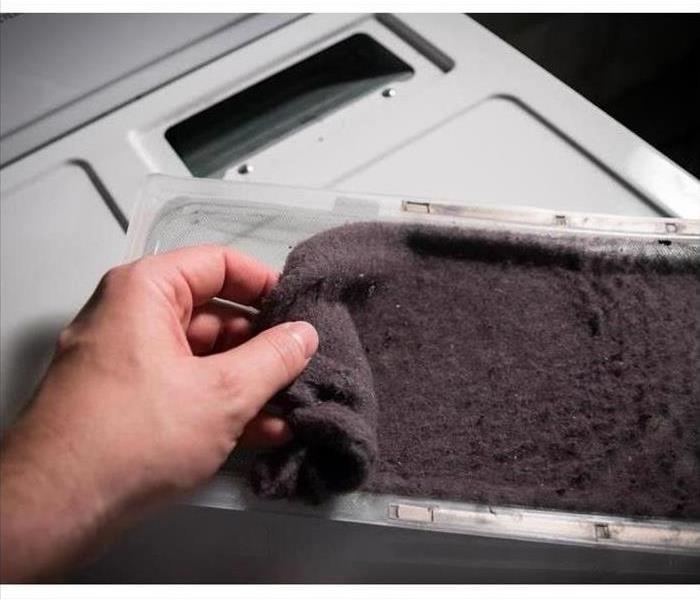Tips to Avoid a Lint Fire
3/3/2020 (Permalink)
It only takes a load or two of laundry to fill up the lint trap in your dryer. Not only does this cut down the functional efficiency of the dryer, but it also creates the risk of a lint fire and, ultimately, a house fire. Protect your home and family from dryer related damages and a visit from fire damage cleanup and restoration professionals by cleaning the lint trap:
Pull the lint trap from the top or front of the dryer and remove the lint by hand. If there's stubborn debris, rinse the filter under a little bit of water.
After removing the screen filter, use your vacuum attachment to keep lint away from the interior of the dryer and prevent clogs.
Give the trap a more thorough cleaning by unplugging the dryer and vacuuming out the interior and exterior hoses and vents. This deep cleaning step should be completed every six months or more often.
To ensure your lint trap is completely clean and free from lint and residue, follow these steps to deep clean a dryer lint trap.
Step 1 – Remove all surface lint from the lint trap.
Step 2 – Wet the lint trap screen and apply a small amount of dish soap.
Step 3 – Use a soft-bristled brush to gently scrub the screen until all the waxy residue is gone.
Step 4 – Rinse the screen thoroughly.
It doesn't take much effort to prevent a dryer fire, and your efforts will result in financial savings and a dryer in top working condition.
Dryer Maintenance for Safe Operation
Removing lint from the trap isn't the only maintenance step you can take to reduce the risk of a lint fire. You can also wipe down the door of the dryer, clean out the outside vent, and avoid setting the temperature of the dryer too high. Only run the dryer when you have a full load but don't overfill the appliance.
Tips for Improved Efficiency
There are a few other tips you can use to get the best results from this appliance. For example, when you do back-to-back loads of laundry, moving a second load into the dryer right after the first load comes out, there's residual heat and the dryer won't have to work so hard the second time around. If you run your load in the washing machine through an extra spin cycle, there is less water for the dryer to remove. Finally, add a dry towel to your load in the dryer; this helps your clothes get dry faster.
The best way to avoid a lint fire is to clean the lint trap each time your run a load through the appliance. Complete a more thorough cleaning two or three times a year to boost efficiency and improve safety. Protect your northern Minnesota home and family with these simple maintenance steps.






 24/7 Emergency Service
24/7 Emergency Service
